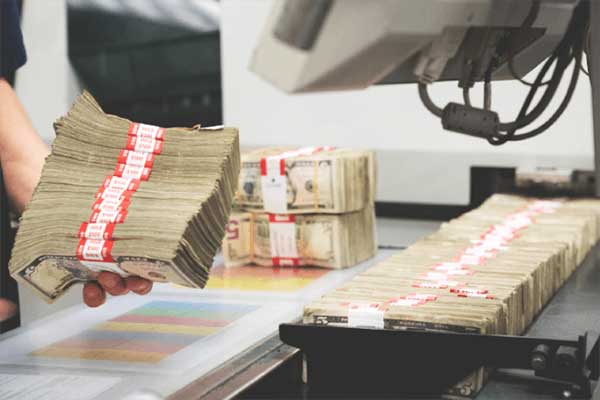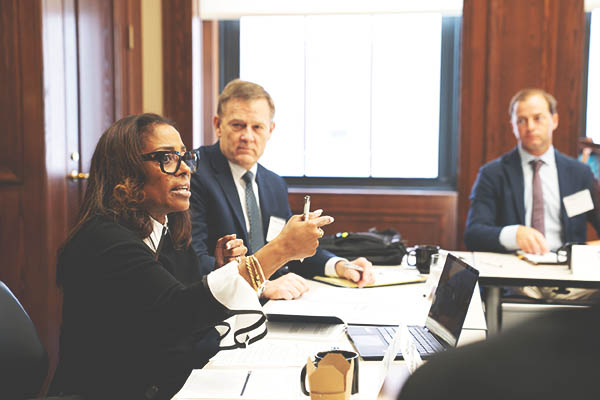About the Federal Reserve Bank of St. Louis
We are one of 12 regional banks in the Federal Reserve System, the U.S. central bank. Together, we promote stable prices and maximum sustainable employment for the nation.
The central bank has a decentralized structure: Each Reserve bank operates in its own geographic area, or District, to ensure economic conditions around the U.S. are represented. The St. Louis Fed serves the Eighth District, which has about 15 million people. Our District spans all of Arkansas and parts of Illinois, Indiana, Kentucky, Mississippi, Missouri and Tennessee. We have branch offices in Little Rock, Louisville and Memphis.
Committed to a Strong and Resilient Economy for All
We are a trusted partner in conducting monetary policy.
The Fed has a dual mandate from Congress. We conduct monetary policy primarily by influencing the level of interest rates and other financial conditions. Advised by staff economists, Reserve bank presidents participate on the Federal Open Market Committee (FOMC)—the Fed’s monetary policymaking body.


We supervise financial institutions.
We examine and inspect state-chartered banks that are members of the Federal Reserve System, as well as bank holding companies, savings and loan holding companies, and financial holding companies. Our work advances a safe and sound banking system. It also fosters financial market stability and compliance with laws and regulations that govern bank activities and protect consumers.
We advance safe payment services and support the Treasury.
We serve banks’ demand for currency and coin in the Eighth Federal Reserve District and ensure the currency circulated in our District is high-quality and authentic. As a fiscal agent, we support the U.S. Department of the Treasury to promote financial integrity and operational efficiency in the federal government. The St. Louis Fed also hosts the Treasury Relations and Support Office that manages the Federal Reserve System’s overall relationship with the department.


We promote consumer protection and community development.
In addition to assessing how well banks comply with financial protection regulations—and how well they meet credit needs of their communities—the St. Louis Fed conducts community development outreach and research. This helps us understand economic conditions and barriers to economic participation. We share insights that improve the flow of capital and credit in underserved rural and urban communities.
We offer free economic research, data and tools.
Our experts give timely analysis in our publications and podcasts. We also run FRED®, one of the world’s most comprehensive economic databases, and the FRASER® digital library of U.S. financial, economic and banking history. Our education team provides personal finance and economic learning. If you’re in downtown St. Louis, visit our free Economy Museum!


We’re decentralized by design.
We’re part of a system—with other Reserve banks—working together to promote stable prices, safe banking, secure payments, and more. The central bank’s structure is decentralized by design. It means the economic conditions of households, communities and businesses across the U.S. constantly inform the Fed’s policies, actions and decision-making. Learn more about the Fed's structure.




